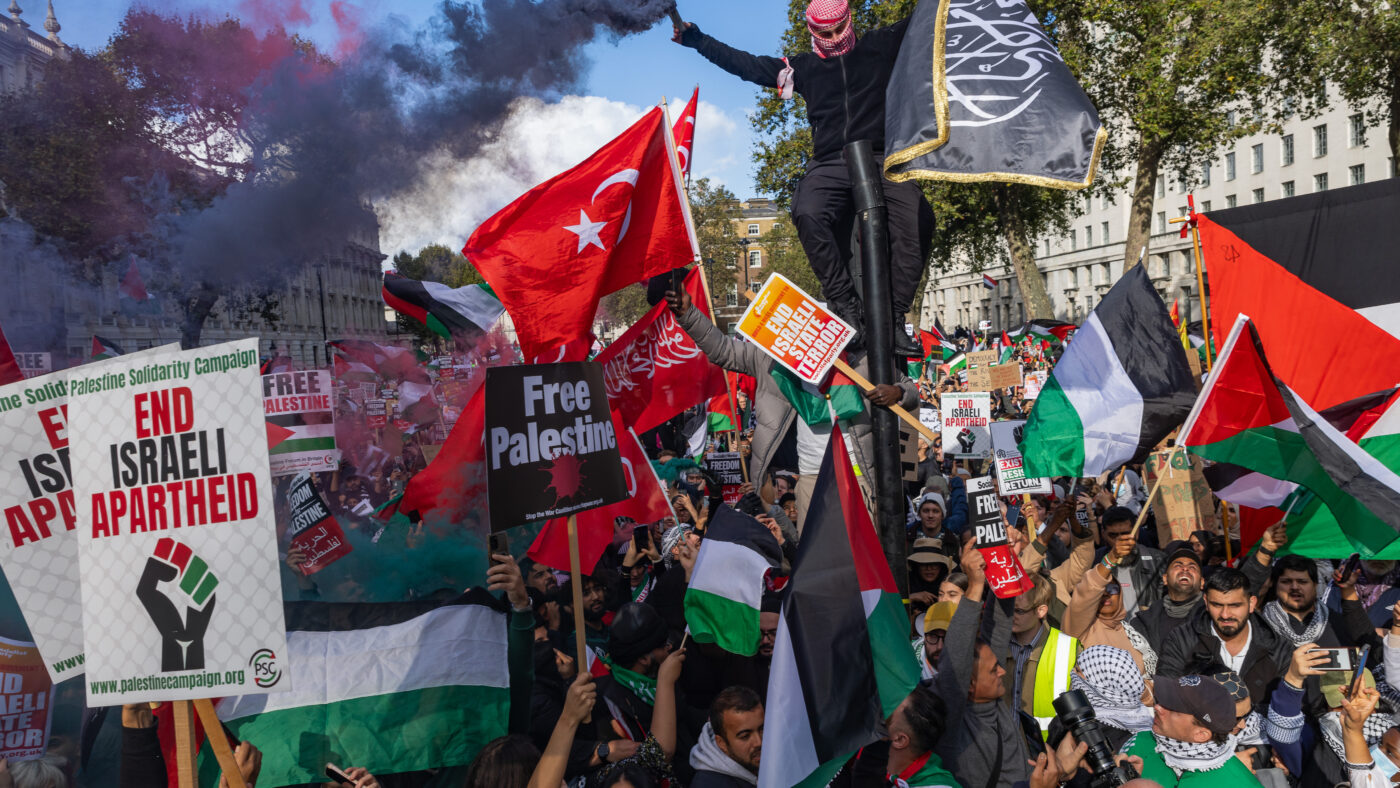It’s fair to say that Northern Ireland’s Parades Commission is not universally loved for its perceived interference in public processions – but it may well be a template for dealing with hate on the streets of Great Britain.
Recent weekends have seen tens of thousands of protestors on the streets of London and elsewhere in a show of solidarity for Palestinians. The right of peaceful protest in this country is a precious one and a bulwark against tyranny. It also acts as a safety valve for emotions and opinions that might otherwise curdle into violence. But the opposite is also true. Protests in favour of Palestinian rights in Gaza and the miserable conditions its citizens endure have clearly been infiltrated by extremists who are exploiting police ineptitude to intimidate British Jews.
There have also been repeated scenes of police officers powerless to intervene when obvious criminality is taking place. This has been aggravated by ham-fisted communications which included a defence of police inaction when groups of protestors were screaming ‘Jihad’ at the same time as yelling ‘Hamas’. Bizarrely, the Met’s ‘experts’ originally claimed that this and the waving of the black ‘Shahada’ flag could as likely be a profession of faith as the more blindingly obvious glorification of a terrorist group who have slaughtered over 1200 Israeli men, women and children. They have now rowed back, arresting one man for a racially aggravated public order offence. But the reputational damage is done – the police are now widely seen as powerless to intervene robustly when offences occur. The sight of police standing idly by while the antisemitic but still somehow legal Hizb ut-Tahrir agitate for ‘jihad’ by ‘Muslim armies’ does not inspire confidence. This is not about permitting the profession of faith or personal internal struggle. Rather, it is arguably encouraging of more of the sadistic butchery against Jews – it is completely incompatible with and intolerable to a pluralistic liberal democracy.
So what has Northern Ireland’s Parades Commission got to do with a solution?
The Commission was formed in 1997 to provide a buffer between police and contentious parades with an independent human rights compliant public body adjudicating on the routes and manner of parades deemed to be contentious. The Commission acquired statutory powers to make their determinations legally binding for both organisers and participants. Those determinations included changes to routes, prohibitions on flags and chants that were not deemed to be consistent with public order and/or take into account the feelings of local residents. While the Commission has no powers to ban parades – that remains with the police – a failure to comply with any conditions would make any participants and organisers liable to prosecution. The Commission is committed to applying article 11 of the European Convention on Human Rights (the right to peaceful assembly), as enacted in UK law, as a benchmark for its decision making. That’s an important distinction to underline. The presumption is in favour of protest, even that which might cause offence, unless there are compelling reasons to restrict it.
It’s also important to note the objections to how the Parades Commission has conducted itself with allegations of bias made by Loyalists who hold the majority of sensitive parades and protests in Northern Ireland’s marching season. However, there are many attractions to the principle of protest regulation that could straightforwardly be applied to contentious parades on the mainland. A function independent of the state would make legally binding determinations on the nature, route and form of a protest, making it clear in conditions what behaviour and emblems are unacceptable. The police are then in a position to intervene when these conditions are broken and go after organisers who do not or will not act reasonably to control the behaviour of their protestors. This would of course require regulation across the political/religious spectrum with contentious extreme right wing (but still legal) protests controlled in the same way. The underlying principle should always focus on what we can do to facilitate lawful and peaceful protest rather than how we can shut protest down. This approach may even have useful application to the much criticised overbearing powers of the state in relation to the Public Order Act 2023, which criminalises ‘public nuisance’. It would of course have no impact on spontaneous public protest.
Protecting the right of peaceful protest is a fundamental component of a free society. That right has been blatantly exploited by people whose objective seems to be to intimidate and foment hatred of one of our smallest minorities. Police timidity in the face of such repulsive behaviour is a result of confused legislation and this gives the dangerous perception of a permissive environment for hateful extremism. It is ironic that the current Met Commissioner, Sir Mark Rowley, reached a similar conclusion while a private citizen in 2012 in a report for the Commission for Countering Extremism. He received no reply from government then. Now he’s in charge of a force grappling with his own predictions. It may be impossible to define hateful extremism, but a protest commission with legal powers of enforcement could at least insist on civilised standards of behaviour from protestors. We should expect nothing less in these febrile times.
Click here to subscribe to our daily briefing – the best pieces from CapX and across the web.
CapX depends on the generosity of its readers. If you value what we do, please consider making a donation.


